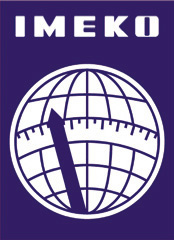
IMEKO TC6 M4Dconf
Hybrid with physical attendance in Berlin, Germany
19 — 21 September 2022
EURAMET metrology: facing and solving digital challenges
Session at a glance
The aims of this session are
- Promote European measurement science and its application, with a focus on the broad range of digital transformation initiatives carried on within the EURAMET community,
- Discuss how these initiatives can benefit industry and society, illustrated by metrology examples
- Engage with the conference participants about collaboration fields and opportunities that align with their interests
Time (in CEST) | Item | Speaker |
15h30 - 15h35 | Welcome | Sascha Eichstädt, PTB |
15h35 - 15h45 | The European Partnership on Metrology | Dagmar Auerbach, EURAMET |
15h45 - 16h00 | Overview of interdisciplinary metrology initiatives arount digital transformation | Louise Wright, NPL |
| Short break | |
16h05 - 16h35 | Contributions to digital transformation from the European Metrology Networks:
| Francesca Pennecchi, INRIM, Markus Bär, PTB Harald Bosse, PTB Christopher Chunnilall, NPL |
| Short break | |
16h40 - 17h10 |
Panel discussion | Dietrich Imkamp, ZEISS IQS Andrew Thompson, NPL Federico Grasso, METAS Christopher Chunnilall, NPL |
17h10 - 17h15 | Wrap up and closing | Sascha Eichstädt, PTB |
Topics and scope
Metrology for sensor networks
Sensor networks (i.e., complex architectures that integrate multiple layers, sensors and systems) are becoming an integrated element in diverse applications in areas encompassed by Legal metrology (e.g., energy, water, gas and heat consumption), Industrial Metrology (e.g., low-cost Internet of Things for Industry 4.0), and fundamental metrology (e.g., multi-sensor secondary standards).
The associated R&D initiatives call for a convergence of existing techniques and approaches in disciplines regarding the information and communication technology (ICT) and data science, but also as to metrological regulatory aspects, in order to address the industrial and societal needs for such sensor networks. The underlying metrological challenges will be considered, including potential methods to accommodate these new sensor networks within the so-called systems of systems approach (SOS), to provide new features such as anomaly detection, condition monitoring, state estimation/prediction and automatic determination of measurement data quality.
Metrology for machine learning
Machine learning (ML) is a powerful tool for digital transformation which leverages the availability of large volumes of data to extend capability beyond known models and to enable automation. Ensuring the trustworthiness of ML is crucial to its wide acceptance, and one important aspect of trustworthy ML is uncertainty evaluation. Several challenges in this area will be discussed and illustrated with examples from X-Ray diffraction imaging and land use classification.
Metrology for advanced and sustainable manufacturing
Metrology already supports advanced manufacturing processes through the provision of information for efficient use of resources and for the determination of the optimal product quality, in both R&D laboratories and the production stream. Yet certain manufacturing processes, such as finishing of mirror surfaces for lithography in semiconductor manufacturing, are still limited by the accuracy of the available characterisation techniques. The large amount of measurement data and the complex algorithms for process control require digital processing of the information. Examples from the industrial community will be brought-in, illustrating how the digital integration of metrology is progressively becoming standard practice in modern factories, as the sector is striving to meet the increasing demand for manufacturing sustainability.
Quantum digital technologies
The integrated physical and digital world requires metrology for digital and data technologies, as well as providing digital technologies and data for measurement. NMIs have a role to play in validating technologies used to collect, transmit/store and interpret data, as well developing robust methods for validating and analysing vast amounts of data. Quantum is likely to enhance all digital technologies; examples include advanced sensing and imaging, enhanced communications, timing and quantum data processing. Some of the metrology challenges and progress in quantum will be discussed.